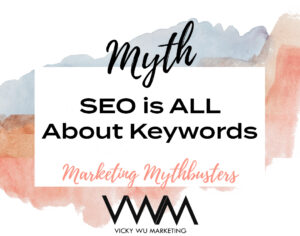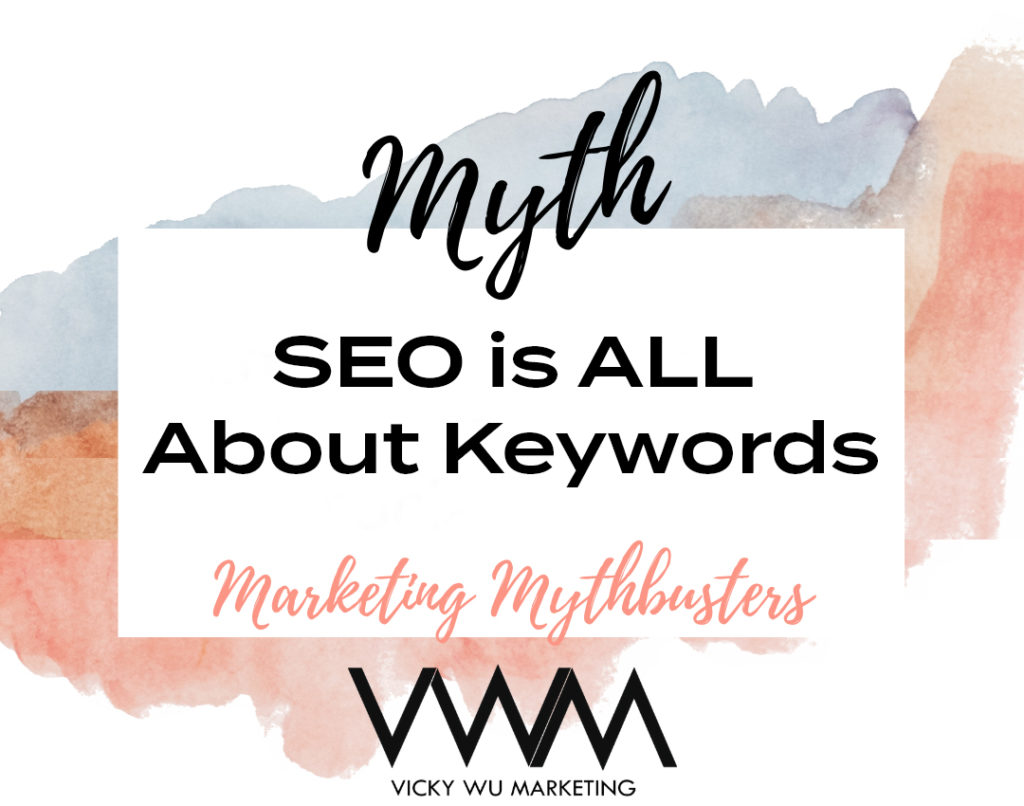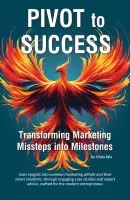- +1 512-591-8295
- [email protected]
- Mon - Fri: 9:00 - 16:00

This marketing myth says that SEO is all about keywords. Let me explain why that is not the case!

It used to be that the only thing Google was looking at in their algorithm was keywords – and that’s how that old practice of “keyword stuffing” came to be, where people would repeat the same keyword over and over and over again on the page with no variations. They would stuff them in the meta description and the page titles, the header and footer, and anywhere that could be found. At one time there was even a meta keyword (it’s still around, but the search engines no longer use that field) and stuff keywords there as well.
Keyword stuffing went out of favor a long time ago and it can actually get you dinged and make your traffic decrease – which is not what you want.
Google’s obviously made changes in their search engine algorithms over the years, and Google’s search engine algorithm understands better now the variations of the keywords. Instead of having the one same keyword over and over again, such as cat, the algorithm now better understands the variations such as kitty and kitten and feline, and Google expects to see those variations in the copy on your website.
More importantly – and one of the newer updates that they’ve done – is that instead of having just a keyword, they’re looking at the entire phrase and the copy around the keyword; mainly because of voice search. People search very differently when they’re typing on their keyboard or even when they’re typing on their phone; their search phrase is usually much shorter. What they’re doing now with more regularity is actually talking to their phone and having it perform their search.
That’s why optimizing your content for voice search can be such an important piece of current SEO. Voice search does not have as much to do with just the keywords. Yes, understanding keywords is still important because you want to make sure that you’re choosing words that your customers or prospects will actually be searching. But that’s not where your main focus needs to be.
Voice search is also why we focus so heavily on the readability of content … things that are too technical or that are worded to formally often don’t see as much traction on the search engine algorithm as something that’s written more like how you would talk to someone. You’ll notice this on our blog: articles are really written much how we talked to you if you were right in front of us. Not formal, not super technical, even with a very technical strategy or process; it’s more natural language – and that natural language is something very important for the search engines now.
Another piece of SEO that’s really new from Google – and you know once the Google updates their algorithms the other search engines won’t be too far behind – has to do with user intent. Even if a user uses the same search term or keyword, and performs the search maybe hours or days even weeks apart, Google looks at their prior search history and what pages they visited (on your website or another website) to help determine their intent … basically where they may be on the customer journey from becoming aware of that they need a solution to a problem and actually purchasing that solution.
User intent is important, and it’s just a good practice, not just for SEO but for your conversions – actually taking people from just visiting your website into a paying customer.
This is where general marketing strategies plus SEO specifically go hand-in-hand really well, and it’s critical that your website, and your entire online presence, uses all of these strategies.
That’s why we teach our exact strategy to help you develop keywords on different content that are appropriate for the different stages of a customer journey in our New SEO Accelerator program. After understanding which keywords are most appropriate for which stage of a customer journey, then we go back and edit those pages (for our clients), or we teach you how to prioritize these pages (if you’re part of our New SEO Accelerator).
You’ll have a landing page – not a landing page in the sense of a funnel system, but a page that a prospect visits either from search, social media, email or from another method. This is the first page that they come into your website, usually at more of an awareness stage of user intent. What you can do is strategically take them from this awareness stage, to another page on your website that will more reflect the next stage of the conversion process, through strategic use of keywords and cross-linking your internal pages and posts. Ideally, that will take them from awareness to intent and to making a transaction.
Google is really focusing on user intent as one of their newer algorithm points, so it’s important to consider what terminology your prospects are going to be searching when they are looking for the products and services you provide. However, if keywords are your primary focus, or your only focus, in today’s SEO world that means you’re focusing on the wrong thing.
If you’re ready to learn more about the newest Google strategies you need to know – including the one algorithm update that they’ve actually told us about in advance, expected to release in 2021, you need to go beyond basic SEO to these new, enhance SEO strategies. This is exactly what you learn in our New SEO Accelerator.
Get solid marketing strategies, designed for entrepreneurs on the track to 7-figures and beyond, right in your inbox.

This website uses cookies to ensure you get the best experience on our website. By continuing to use the website, you agree to our use of cookies. We do not share or sell your information. More info
